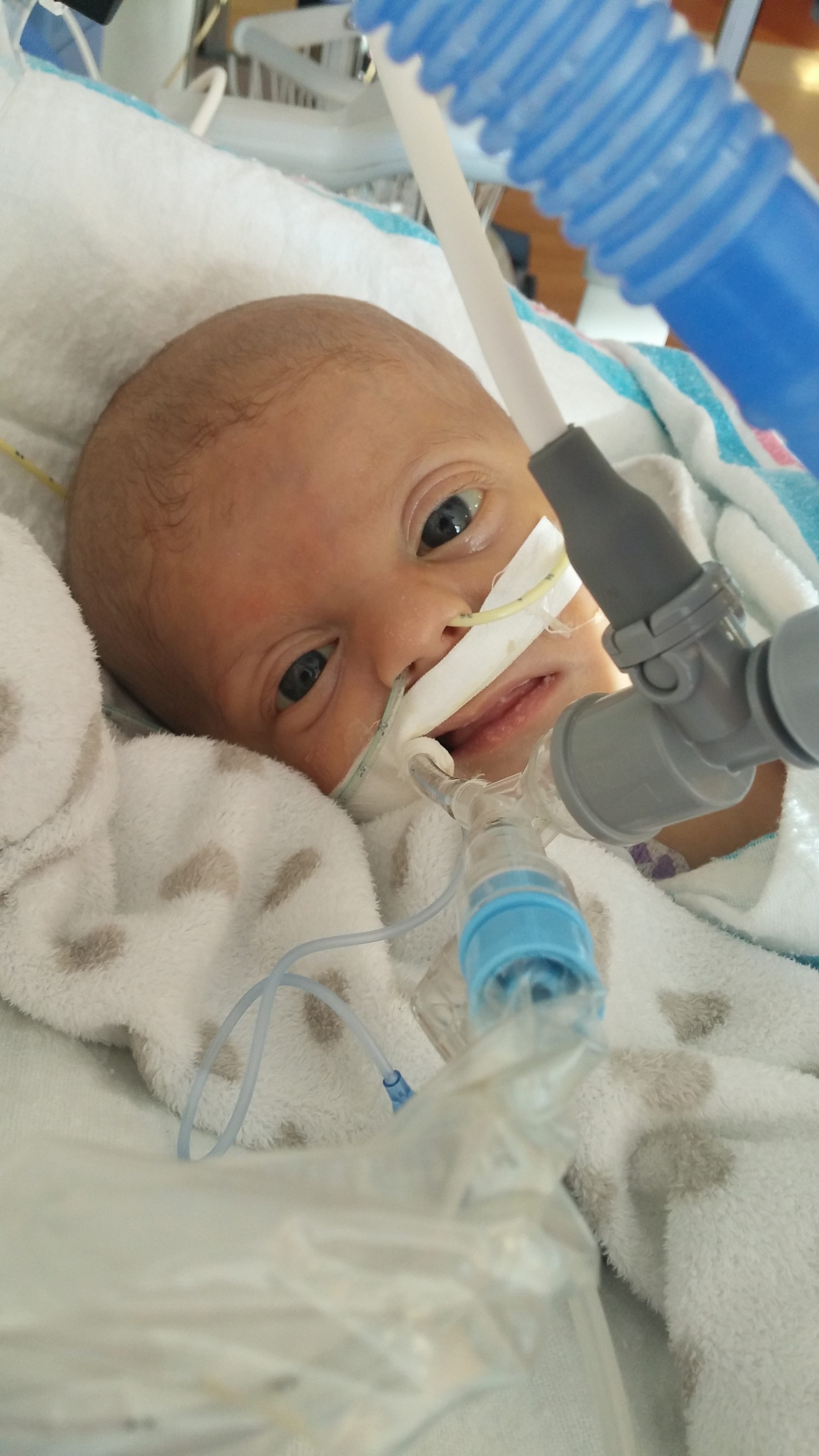Babies with a congenital heart disease have a difficult time absorbing food, gaining weight, and pooping. Why? Because their hearts are weaker. Is your baby diagnosed with cardiomyopathy or a heart defect? In Cardiomyopathy infants, the right and left ventricles (lower chambers of the heart) struggle to squeeze enough blood to the rest of the body to help other organs do their job. Their squeezing mechanism has been weakened.
In my personal experience, I’ve observed that Cardiac babies are at a disadvantage for doing things that healthy babies can do. Because of this, if your child is hospitalized in the intensive care unit, please mention the following ideas to nurses, cardiology fellows, and cardiologists. Get educated on CHD and ask lots of questions. Moms and dads are the best advocate for their children!
How can my infant gain weight? Does your baby have slow or poor weight gain?
- MCT Oil. A cardiology fellow mentioned this to the team. She said it’s very popular in the NICU, even though my son was in the pediatric cardiac unit on a different floor. So the nurses mixed it with his formula. My son received it three times a day, at a dosage of 2 ml.
How can my baby absorb feeds? Unable to absorb nutrients? Does he or she have a feeding tube? Try these 2 suggestions:
- Alfamino. This is specialized formula. It breaks down food better and is more easily digestible than Pregestimil. This is a great idea if your cardiac baby is unable to digest other types of formula or breast milk properly.
- Feeds in the intestines. Is the newborn having a hard time absorbing feeds in the stomach? They can put the feeding tube into the intestinal area and bypass the stomach. This worked for my son and he finally gained weight!
- Feeds in the stomach: Is the baby on a breathing ventilator and feeding tube? If NO, then here is a great alternative: Nursing. It is often easier and less stressful for them than bottle feeding. Babies burn less calories when they nurse. This also creates a special bond between mother and child.
My baby is having a hard time pooping. What can I do? When your son or daughter tries to poop, do they get agitated? Does their high heart rate increase, do they have ventricular tachycardia? Here are 5 tips that helped my 8 week old boy:
- Lay them on their stomach. This can help relieve air in the belly and move bowels around. Is your child using a breathing ventilator? No problem. It takes 2-3 nurses to position the child but it can be done! In my experience, this helped a lot for my 10 week old son.
- Prune Juice or Pear Juice. An experienced nurse suggested this alternative to the doctors instead of adding more fluid into my son’s body. He received a dosage of 5 ml twice a day, mixed in with his formula.
- Rectal Suppository Pills. Nurses can insert this small transparent-looking pill into the baby’s rectum. Within a few hours (or minutes), he or she should be able to poop because this pill stimulates the area.
- Snugapuppy. If you do a Google search on this word, you’ll find a stuffed animal that vibrates (Fisher-Price). If you place the doll on your child, it can help do the following: soothe them and prevent agitation, reduce heart rate, help them sleep and most importantly – stimulate the body to get bowel movements moving down the gastrointestinal tract.
- Bicycle movements and leg exercise. Physical and Occupational Therapists at the hospital mentioned this idea to me to help relieve gas pain in newborns. It’s rapid leg pedaling or bicycling.
 FYI even if your child has a breathing ventilator tube in their mouth, they can still do many of these things!
FYI even if your child has a breathing ventilator tube in their mouth, they can still do many of these things!
These ideas above have been inspired by parents, RN’s and nurses in the PCTU Pediatric CardioThoracic Unit at C.S. Mott Children’s Hospital in Ann Arbor Michigan.
Do you have any creative suggestions to add? Email a heart mom at skepticalworld@gmail.com

6 thoughts on “Is your Baby Struggling with Weight Gain, Absorbing Feeds and Pooping?”
Comments are closed.